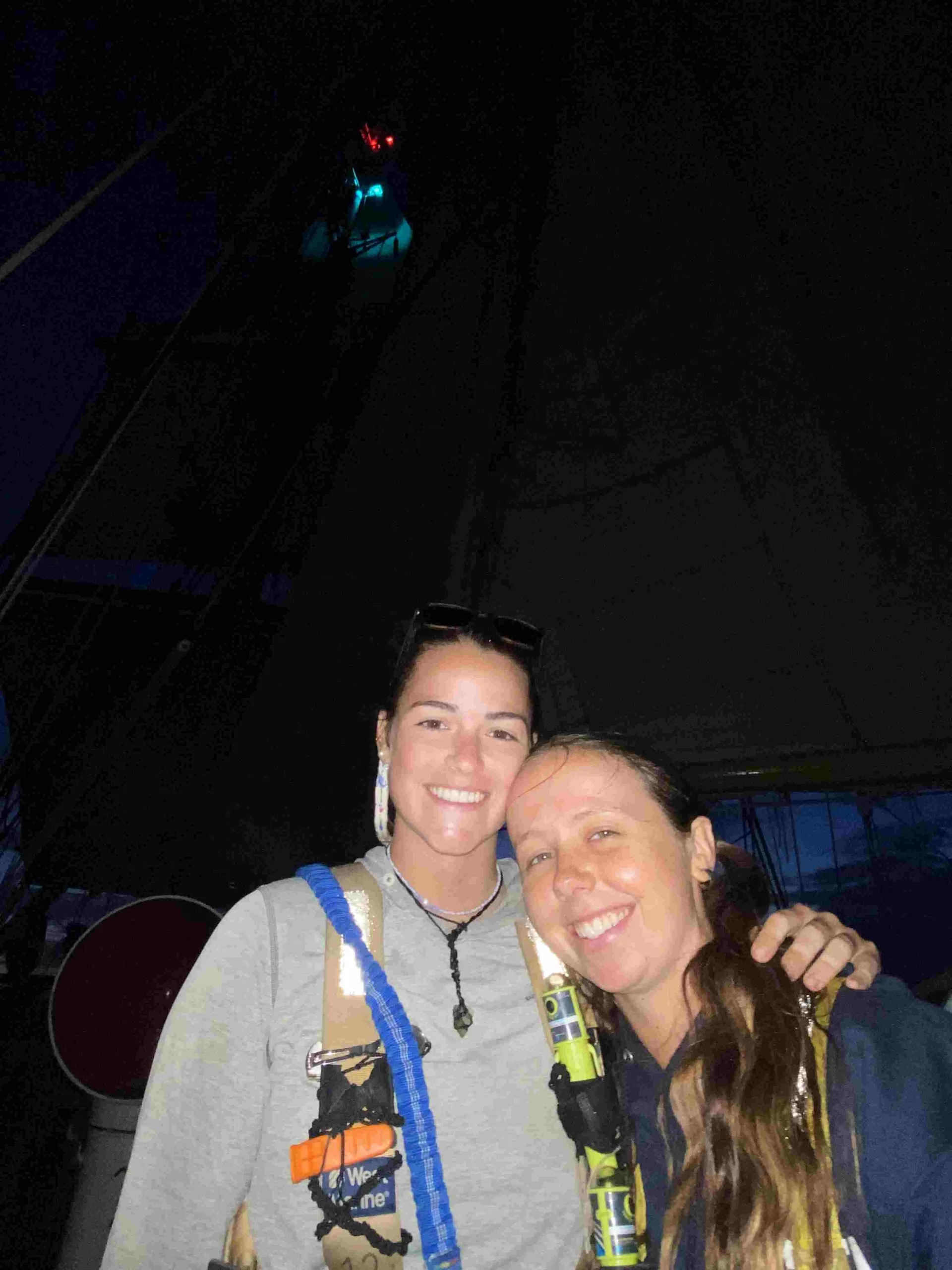Programs Blog
Far from Land

Author: Katharine Hassenfratz, Boston University
Ship’s Log
October 30, 2023Time: 1631Location: 28 388’S 175 30.365’EWeather: Winds coming from the NW, force 7, 12ft. seas, and 19 Celsius
Hello! My name is Katharine and I am a senior at Boston University and I am majoring in public relations. I am originally from Westchester, New York but have spent most of my time the last few years either living in Boston or mid-coast Maine.We have been underway for some time now (consistently almost two weeks) which means that we are far from land and any sort of trash disposal. So what do we do with it while we are underway? Most of it goes overboard because a good part of what we are throwing out is food waste and easily decomposable items, such as paper products and small torn up bits of cardboard. Whatever goes through our bodies can also go overboard. The main priority is to leave no trace, so no plastic packaging, no metal, no chemicals from the lab, and no oil can go overboard. Something like a tea bag cannot go overboard because of the metal staple and little plastic bits on the bag.I have worked on a few different boats, and we all call the food that goes overboard something different. Either it’s gluck, swill, chucks, but on the Robert C. Seamans, we call it slops. How slops work is you fill a five-gallon bucks in the galley full of any left-over food from your plate, food that has ⌠passed its prime, and other miscellaneous food items. Once it is overflowing because no one wants to be the one to have to dump slops, a brave soul (most commonly Matt, the 1st assistant scientist) will take it from the galley and bring it up to deck where we give ⌠offerings to Neptune (god of the sea). and dump it overboard. Do not inhale at this time. Then taking a deck hose, you spray out any stubborn leftovers and also dump that over. After dumping the slops, you MUST log it in the trash log. This is a book that keeps track of what the ship has put overboard. Some nations, like New Zealand, that we sail into ask to see the records so it is important we keep track. After logging the trash, the brave soul will return the bucket back to its home where it will continue to collect the slops that are waiting to be dumped.To limit the pollution trace left by ships, the International Maritime Organization (IMO) created the International Convention for the Pollution for Ships (MARPOL). MARPOL sets clear guidelines to prevent pollutants such as oil, sewage, harmful cargo, garbage, etc. The main rule of discharges such as food slops and sewage (black water), is that you much be at least 12 miles from the closest part of land in order to discharge. So what do we do when we cannot discharge and are too close to land? Put a lid on it and don’t knock it over! The black water goes into a large holding tank and slops are collected in our good old friend, the five-gallon bucket and left on deck lashed down SUPER well. SHOUTOUTS:Mom- Hey queen! Miss you tons, I think everyone here is sick of me talking about how awesome you are. I can’t wait for you to hear the quack of my phone call (hopefully I can get you out of work for a few minutes). Hope the princess is well too!! You would love the sailing we’ve been getting the past couple days, huge waves just crashing. I had to wear my harness to bed because I would fall out of bed otherwise. Rugrat’s been keeping me company. I’ve been learning a lot and I’m excited to tell you all about it. Can’t wait to hear what you have planned for New Zealand. Love youuuu!The boys- Miss you too! I will not lie, I am nervous to hear about how the Bills are doing but hopefully we can squeeze in a family game or go to the Harp. Can’t wait to see you in New Zealand, Kev-Dawg. Mark, I hope I’ll finally have the time this winter to come by the bar and hangout. I also found a way to lash a harmonica to my harness so I could play it while on lookout, but I unfortunately lost it in the bilge of the engine room and I am not brave enough to reach my hand down there.
Recent Posts from the Ships
- Ocean Classroom 2024-A collaborative high school program with Proctor Academy
- Collaborations and Long-term Commitments: SEA’s Caribbean Reef Program Sets a Course for Coastal Programs that Compliment Shipboard Experiences.
- Sea Education Association students prepare for life underway using state of the art nautical simulation from Wartsila Corporation.
- SEA Writer 2022, Magazines From the Summer SEA Quest Students
- Technology@SEA: Upgrades Allow Insight into Ocean Depths
Programs
- Gap Year
- Ocean Exploration
- High School
- Science at SEA
- SEA Expedition
- SEAScape
- Pre-College
- Proctor Ocean Classroom
- Protecting the Phoenix Islands
- SPICE
- Stanford@SEA
- Undergraduate
- Climate and Society
- Climate Change and Coastal Resilience
- Coral Reef Conservation
- Marine Biodiversity and Conservation
- MBL
- Ocean Exploration: Plastics
- Ocean Policy: Marine Protected Areas
- Oceans and Climate
- Pacific Reef Expedition
- The Global Ocean: Hawai'i
- The Global Ocean: New Zealand